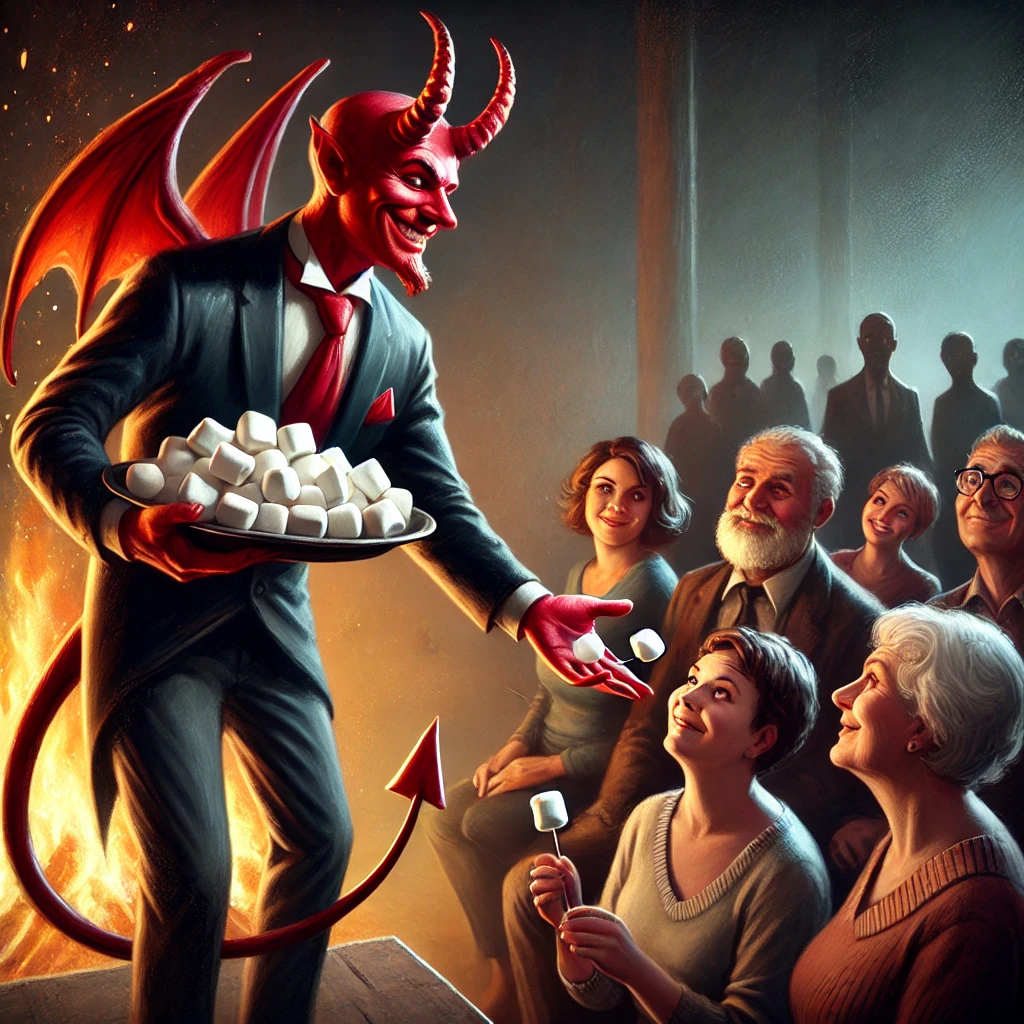We live in a world filled with opposing ideas—clashing perspectives, shifting cultural landscapes, and debates that seem to grow louder by the day. But amid all this noise, are you actually engaging in critical thinking? Are you analyzing the ideas presented to you, or are you being led by the nose, believing anything you see and hear simply because it aligns with your current worldview?
Controversy has an undeniable pull on us. It stimulates the brain, triggering a reaction in our cortex that rewards curiosity, novelty, and even the forbidden. Have you ever scrolled past something and thought, I wouldn’t normally click on that…—but then you do? That’s your brain seeking novelty and rewarding you for stepping into the unknown.
But why? Why are we wired this way?
The Thrill of the Taboo
What’s controversial to one person may be completely mundane to another. Taboo subjects naturally evoke curiosity, discomfort, and even pleasure in challenging our beliefs. If a deeply held religious or political belief is questioned, the reaction can go one of two ways: either you dismiss it outright and get defensive, or you secretly explore the opposing idea, even if just to understand what makes it so provocative.
Either way, your brain is engaged. Either way, you’re rewarding yourself.
But for some of us, controversy isn’t just a passive experience—it’s a thrill. Pushing boundaries isn’t about getting attention; it’s about intellectual engagement. It forces us to explore topics we might otherwise ignore and consider perspectives we may not have entertained before. And isn’t that what makes us more complete as human beings? Isn’t that what fuels growth?
The Risks of Thinking (and Speaking) Freely
Engaging in controversial thought is not without its risks. Speaking your mind—even with good intentions—can come at a cost:
• Reputation risk – People you respect may turn against you.
• Censorship – Platforms can silence voices they find too disruptive.
• Misinterpretation – Your words may be twisted into something you never intended.
But taking risks is what life is about.
In today’s internet-driven world, where everyone has a voice, ideas are thrown into the digital ether at an unprecedented speed. Whether you post on Facebook, Instagram, Bluesky, or Threads, you’re engaging in a global conversation where some will love you, and others will hate you. That’s not new, but the instant accessibility of reactions is.
It used to be that controversial thinkers had to write books, find publishers, and wait for discourse to unfold slowly. Today, ideas are uploaded, shared, and dissected within seconds. Are we better off for this, or is this a curse on human discourse?
Is Controversy Necessary?
I believe controversy is not only necessary—it is essential for the survival of a free-thinking society. Without it, we stagnate. Without it, progress dies. Free speech is the foundation of human evolution—intellectually, socially, and politically.
But that doesn’t mean every disagreement is productive. There are some ideas we can “agree to disagree” on—but others? Some moral and ethical lines simply should not be crossed. We are, after all, dealing with a world where racism, classism, murder, and mayhem are on the rise. Can we debate those things in good faith? Should we?
It’s not enough to pretend we believe in fairness and justice while turning a blind eye when it’s inconvenient. The golden rule only works if we actually follow it, not just recite it when it suits us.
So how does this all conclude?
The Choice is Ours
Can we, as a society, engage in real conversations about the issues that shape our future? Can we explore controversial and taboo topics without shutting down or shutting others out? Or are we destined to become rigid, unmoving relics of our own personal beliefs, forever unwilling to evolve?
As the world grows, so will its complexity. We will either move forward together or be left behind.
So I ask again: Are you willing to challenge yourself?



